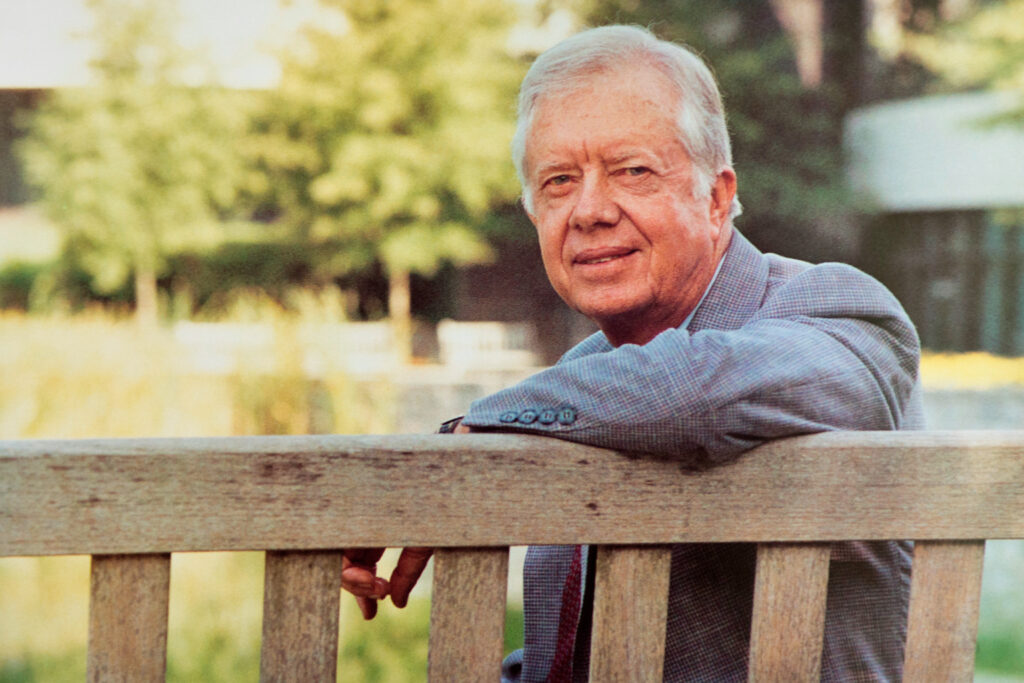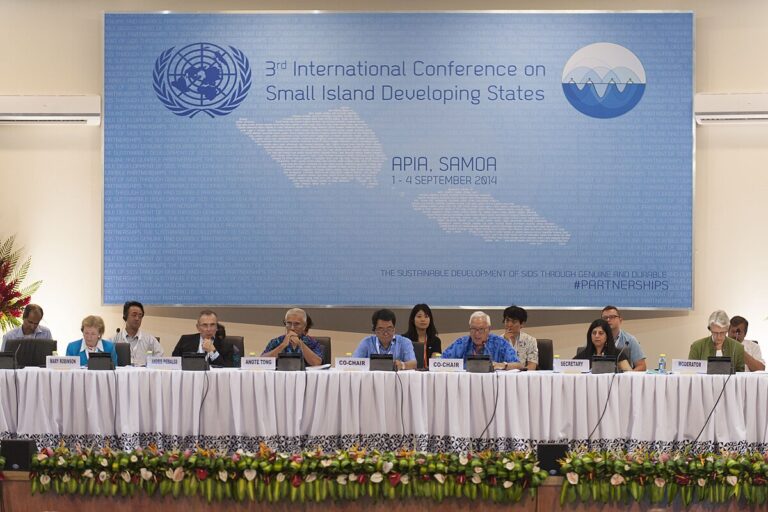Jimmy Carter was a complex man who led the United States in a complex era. He lived humbly but was not humble. He believed in forgiveness but was unforgiving. He promised that his administration would be transparent, but he personally was the least transparent of men. He questioned, in the wake of the Vietnam War, the need to contain the Soviet Union everywhere, but he did not want it to expand anywhere on his watch. He sought the acclaim of the crowd but was, above all, a solitary man.
These contradictions were perfectly attuned to the United States in the late 1970s, years of discord and disappointment when many Americans were grappling with the meaning of the US failure in Vietnam, the Watergate scandal, and the future of liberalism. The consensus with which Americans had fought the early Cold War had been shattered. Jimmy Carter governed in—and reflected—this era of fracture.
Three myths about the Carter presidency have clouded our ability to evaluate his achievements clearly.
Myth #1: Carter Was Soft on the Soviet Union
The first myth is that Jimmy Carter, peanut farmer, arrived in Washington wet behind the ears. It is tempting to impose a simple narrative arc on the Carter years: in 1977, a starry-eyed Georgian arrives in Washington pursuing naïve foreign policy goals; a year later, in 1978, when the Soviets and Cubans intervene in Ethiopia, the president begins to discern the clear and present danger of Soviet communism; then, in late 1979, as Soviet tanks roll into Afghanistan, the scales finally fall from his eyes, and Jimmy Carter becomes a Cold Warrior. This story plays into well-worn assumptions about the parochialism of southerners, and it superimposes an easily understood plot line on the turbulence of the Carter years.
The problem is that it is not true. Jimmy Carter was a Cold Warrior before he came to Washington.
Why is this not obvious? Jimmy Carter was, after all, a white southern Democrat who came of age during World War II; he was a graduate of the Naval Academy and a naval officer for six years. Of course he saw the world through Cold War glasses.
But if you analyze the response to his presidency, a pattern begins to emerge. Look, for example, at the response to Carter’s 1977 commencement address at Notre Dame, in which he announced that “we are now free of that inordinate fear of communism.”[1] Carter was not saying anything new; presidents had tried to ratchet down Americans’ “inordinate fear of communism” ever since the 1962 Cuban Missile Crisis. What, after all, was détente? Carter was not talking about a post-Cold War world. Nevertheless, this phrase became emblematic of his alleged weakness, naïveté, and ineptitude. Not just during the Reagan administration, but even in 2006—almost thirty years after Carter’s Notre Dame speech—George W. Bush proclaimed, “At the height of the Cold War, a Democrat President told the country that America had gotten over its inordinate fear of communism… Fortunately, in the 1980s, America had a Republican President who saw things differently.”[2]
The narrative that Carter was a crusading idealist rather than a hard-nosed realist coalesced with a pervasive condescending attitude among elites toward Carter’s southern and middle-class roots. This was expressed not only in comments about the “Georgian Mafia,” but also, for example, by Kissinger’s remark, after he had visited Plains, to the British foreign secretary, that “It was like going into the bush in deepest Africa. The Carters’ house is… an average lower middle class house with vinyl furniture.”[3] This snide attitude was also evidenced in foreign leaders. French president Giscard d’Estaing, for example, wrote that “When Carter talked, we could sense in our bones that he had arrived in Washington straight out of Georgia, without a stop or a detour.”[4]
Myth #2: Carter Was Torn Between the Advice of Vance and Brzezinski
The fundamental error of thinking that Jimmy Carter was naïve fed into the second myth about his presidency: that Carter was a weak, indecisive, and irresolute man torn between the dovish advice of Secretary of State Cyrus Vance and the hawkish advice of National Security Adviser Zbigniew Brzezinski.
Vance and Brzezinski did disagree at times, but their differences were typical of presidential advisers and rarely were critical to the formulation of policy. Carter did vacillate at several key moments, but overall, he was a decisive president. Hamilton Jordan, one of his closest aides, put it succinctly: “Anybody who… has watched… [Carter] operate knows that he’s a tough son of a bitch. The one thing he is not is indecisive.”[5] Henry Kissinger agreed: he told the British ambassador in Washington, “One would have to go back to FDR to find a President who took on himself so much of the decision-making.”[6] Carter made hard choices and stuck with them even when they were politically costly—in Panama, in China, in the Middle East, and in Africa. Did any other modern US president so consistently and so doggedly stake out such controversial terrain? His predecessors had dodged making the tough calls on Panama, Taiwan, and South Africa; they had been unwilling to risk their personal prestige on the Arab-Israeli crisis. Carter noted, thinking back on his presidency: “I can’t think of anything we did that was popular. We were skating on thin political ice.”[7] When Carter did waver, as in Iran, it was because these decisions were very difficult; it was not because he listened one day to Vance and the next to Brzezinski.
That the idea of Carter being torn between Vance and Brzezinski gained currency is testament to the president’s utter failure to convey to the public a sense of who he was. He was tarred with the image of hesitancy and self-doubt; in a word, he was increasingly (and to this day) seen as a “wimp.” In fact, it would be more accurate to stress Carter’s supreme self-confidence.
Myth #3: The Carter Presidency Weakened the US’s Position in the Cold War
The widespread perception of American weakness at the end of the Carter years is Myth #3. Kissinger told The Economist in 1979: “Look at what has happened… we have had Cuban troops in Ethiopia, two invasions of Zaire, a communist coup in Afghanistan, a Communist coup in South Yemen, and the occupation of Cambodia by Vietnam, all achieved by Soviet arms… so that Cuban pilots and aircraft are operating all around Africa… To my mind, [this signifies]… American geopolitical decline.”[8]
In fact, the United States was winning the Cold War. There were huge gains during the Carter years in China, the Middle East, Africa, and Eastern Europe. In January 1981, when Carter left the presidency, the United States was in a stronger position vis à vis the Soviet Union than it had been in January 1977 when he and Rosalynn had strolled to the White House.
Regarding China, Nixon got all the kudos, but it was Carter—not Nixon—who had the moxie to take the politically costly step of abrogating the Taiwan Relations Act. In the Middle East, the Camp David Accords served US interests by precluding another major Arab-Israeli war, by anchoring Egypt as a US client, and by marginalizing Soviet power in the region. Throughout the developing world, America’s standing was improved by Carter’s negotiation of the Panama Canal treaties, his ardent support of majority rule in Rhodesia, and his championing of Andrew Young, the first Black American to serve as US Ambassador to the United Nations. And in Eastern Europe, the heart of the Soviet empire, the Carter administration encouraged dissent by espousing human rights, bolstering Radio Free Europe, and praising prominent Soviet and Eastern European dissidents.
Nevertheless, in the Carter administration’s waning months, Americans felt that their government was being outmaneuvered, time and time again. Given the belief that the Cold War was a zero-sum game, this sense of weakness led Americans to exaggerate Soviet strength: if the United States felt weak, then the Soviet Union must be correspondingly strong. This conviction caused even well-informed and wise commentators to underestimate the perils the Soviet Union faced. In 1980, while Americans were obsessed with the hostages in Iran, the leaders in the Kremlin were facing two of their worst nightmares: in Afghanistan, their army was bogged down by mujahidin supported by the United States and China working together; and in Eastern Europe, the Polish government had capitulated to Solidarity.
Conclusion
It is easy to criticize Jimmy Carter. He was a true outsider, and he made mistakes. He tried to do too much too fast. He did not convey a clear sense of his priorities. He and his top aides were overwhelmed implementing the ambitious policies they planned—SALT, Panama, China, the Middle East and southern Africa—which meant that unexpected crises such as the war in the Horn, the Iranian Revolution, and the turmoil in Afghanistan were ignored for too long. Moreover, with so much legislation crowding Congress’s agenda, it was inevitable that some of the president’s initiatives would fail. This gave his critics fodder. Carter himself reflected on this. Almost wistfully, he contrasted his cluttered agenda with what “Reagan did, I think wisely, with a major premise and deliberately excluding other conflicting or confusing issues. It… gave the image… of strong leadership and an ultimate achievement. We didn’t do that.”[9]
Three myths—that Carter entered office a naïve idealist and left a disillusioned realist; that he was torn between the contradictory advice of Vance and Brzezinski; and that he undermined the position of the United States in the world—have colored the image of the Carter presidency. Jimmy Carter was—like all presidents and like all of us—flawed. There are valid reasons to be critical of his policies and his leadership, but these three myths have distorted our ability to see the extraordinary achievements of his presidency clearly.
Works Cited
[1] Jimmy Carter, “Address at Commencement Exercises at the University of Notre Dame,” May 22, 1977, The American Presidency Project, UC Santa Barbara, https://www.presidency.ucsb.edu/documents/address-commencement-exercises-the-university-notre-dame.
[2] George W. Bush, “Remarks at a National Republican Senatorial Committee Reception,” Oct. 20, 2006, Public Papers of the Presidents of the United States, https://www.govinfo.gov/content/pkg/PPP-2006-book2/html/PPP-2006-book2-doc-pg1884-2.htm.
[3] Susan Crosland Journal, Book Three, Crosland 19/4, The British Library of Political and Economic Science of the London School of Economics.
[4] Giscard d’Estaing, Valéry. Le pouvoir et la vie 2, L’ affrontement (Paris: Compagnie 12, 1991): 377.
[5] Hamilton Jordan Oral History, Nov. 6, 1981, The Miller Center of Public Affairs of the University of Virginia, https://millercenter.org/the-presidency/presidential-oral-histories/hamilton-jordan-oral-history.
[6] “Peter Ramsbotham (UK Ambassador to United States) to Michael Palliser (British Permanent Undersecretary of State),” Apr. 16, 1977, PREM 16/1484, National Archives of the United Kingdom.
[7] Author’s interview with President Jimmy Carter, May 23, 2002, Atlanta, GA.
[8] “Kissinger’s Critique,” Economist, February 3, 1979, 22; “Kissinger’s critique (continued),” Economist, February 10, 1979, 31, https://findit.library.yale.edu/catalog/digcoll:558495.
[9] “Interview with Jimmy Carter,” Nov. 29, 1982, The Miller Center of Public Affairs of the University of Virginia, 23, https://millercenter.org/the-presidency/presidential-oral-histories/jimmy-carter-oral-history.




